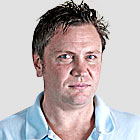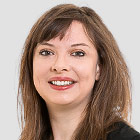Vladimir Putin has doubled down on his support for the Syrian government despite the release of postmortem results by Turkey that confirmed chemical weapons were used in an attack that killed at least 72 people in north Syria.
The Russian president attacked “groundless accusations” that Damascus was responsible for the assault, and called for a “detailed and unbiased investigation” into the deaths, a Kremlin statement said.
Russia’s defence ministry has argued that Syrian planes were destroying chemical weapons, not deploying them, and said the airstrikes targeted a rebel storage depot for toxins. That claim has been widely dismissed as implausible by experts.
As firm evidence of chemical weapons use mounted – along with calls for Russia to restrain the Syrian president, Bashar al-Assad – Putin’s spokesman attempted to put some distance between the two allies.
“Unconditional support is not possible in this current world,” Dmitry Peskov told Associated Press, adding that Russia could not control the Syrian leader.
But Peskov also offered implicit support to the Damascus regime by repeating the argument that the chemical weapons that killed so many had belonged to rebels. Asked for proof, he said Russia’s military presence in Syria mean t it had “more wide information” about what was “going on there”. The UK defence secretary, Michael Fallon, was among those calling on Moscow to restrain Damascus, saying the “appalling” attack had to be “laid clearly at the door of the [Assad ] regime and its supporters”.
He told reporters: “[The UK is] consulting urgently with allies now to see how we can get Russia, which supports the Syrian regime, to put proper pressure on President Assad to stop these attacks once and for all .”
Western nations have been frustrated by the UN’s failure to respond to the attack – devastating even by the standards of a brutal civil war – because Russia has deployed its veto in the UN security council to protect Assad’s government from censure.
Britain, France and the US have asked the security council to hold a vote later on Thursday on a resolution demanding an investigation of the suspected chemical attack in Syria, diplomats said.
Russia had objected to previous drafts, and it was unclear whether they would support the la test draft, which was slightly revised after negotiations over the past two days.
Turkey on Thursday said the first conclusive evidence of the use of chemical weapons had been found in three victims of the Tuesday, who had died in Turkish hospitals after being brought from Syria for treatment.
The Turkish justice minister, Bekir Bozdağ, announced that the results of the autopsies confirmed that chemical weapons had been used, the state-run Anadolu news agency reported.
The postmortems were conducted by officials from the World Health Organization in Adana, southern Turkey, along with officials from the Organisation for the Prohibition of Chemical Weapons, Bozdağ said.
Later Turkey’s health ministry said 31 people injured in the attack who had been taken across the border showed signs of being exposed to the nerve agent sarin.
“Evidence was detected in patients which leads one to think they were exposed to a chemical substance [sarin],” the ministry said in a statement.
The medical results from Turkey came as the Syrian foreign minister denied his government used chemical weapons in the attack. He also denied Syria had ever used them, even though reports from UN investigators have confirmed previous chemical attacks by both the Syrian government and Islamic State forces.
Speaking to reporters in Damascus, Walid al-Muallem said: “The Syrian Arab Army has never used chemical weapons and will not use chemical weapons against Syrians and even against terrorists.”
He also cast doubt on the prospect of a fact-finding mission into the attack, claiming Damascus would need assurances that it would be impartial.
The attack killed 72 people, including 27 children, and injured 546 others, according to Unicef, making it one of the worst atrocities of the six-year war.
The postmortem results add to mounting evidence that the attack involved deliberate use of chemical weapons by a Syrian warplane. Aid agencies, including Médecins Sans Frontières and medics in Turkey, said patients showed clear symptoms of exposure to sarin.
But Muallem denounced the “chorus” of accusations against Syria, which he said was launched by countries known for their hostility towards Damascus.
On Wednesday, Donald Trump accused Assad’s government of going “beyond a red line” by conducting the attack which he said was an “affront to humanity”.
But when asked whether he would consider military intervention to remove Assad, the US president replied: “I’m not saying I’m doing anything one way or another, but I’m certainly not going to be telling you … Militarily, I don’t like to say where I’m going and what I’m doing.”
The US ambassador to the UN, Nikki Haley, has warned Russia it “cannot escape responsibility” for the attack.
Displaying pictures of children killed in the attack at the UN in New York, she suggested that if the UN fails to respond to the atrocities the US may act to stop further chemical attacks by the Assad regime.
Theresa May appeared to play down the idea of supporting the US in any military action against the Assad regime, claiming the onus was on Russia to use its influence to stop the bloodshed.
“What I would say is, all those backing that regime including Russia need to use their influence to stop Assad from bombarding and dealing with his people in such a way,” said the prime minister.
Rescue workers have gathered soil samples from the scene of the attack and sent them to western intelligence officials to determine precisely what nerve agent was used.
Witnesses said at least one Syrian warplane dropped bombs on Khan Sheikhun at about 6.30am on Tuesday. Shortly afterwards, first responders were overwhelmed with patients suffering from acute breathing problems, foaming at the mouth and writhing in pain.














